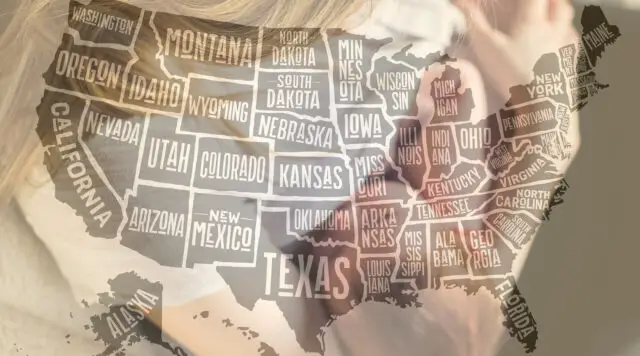By Jake Marcus, J.D.
Most women who breastfeed their children will, at some time or other, find it necessary to nurse their children outside of their homes. For most women who nurse in public places, feeding their children will be no more stressful than nursing at home. Other people often do not notice when someone is breastfeeding near them, and those who do notice are generally indifferent or even supportive. All too often, however, we read stories of women who have been told to use a bathroom to nurse their children, asked to cover themselves and their child with a blanket, or told they must leave a place because they want or need to nurse.
“I have the right to breastfeed anywhere I have the right to be” has become the rallying cry of mothers who breastfeed outside their homes. But is this true? And if it is true, what can be done if someone interferes with that right while a woman is breastfeeding in a public space?
There are no laws in the US forbidding breastfeeding outside of the home, and only two states in which laws place any limitation on the way in which public breastfeeding may be done.1 However, in the absence of a law establishing and protecting the right, a woman who breastfeeds in a public accommodation—a privately owned place open to the public, such as a restaurant or shopping mall—might lawfully be asked to leave, either by the owner or in accordance with the owner’s instructions. If she refuses, she might be removed by the police or placed under arrest for trespass. Without a law to protect her, a woman breastfeeding in a public place such as a park, or state-owned properties (e.g., a courthouse), risks removal by the police and potentially (though this is rare) a charge of some form of indecent exposure. A basic maxim of American law is that a right without a remedy is no right at all.2 In plain terms, this means that although you may have a “right” to do anything not otherwise forbidden by law if you do not also have legal protection against someone interfering with that right, your ability to exercise it may be limited.
What Do State Public Breastfeeding Laws Say?

State laws that protect public breastfeeding fall into three categories. Currently, the strongest state laws are those that both protect a woman’s right to breastfeed anywhere she or her child has a right to be, regardless of whether the breast is showing, and that also gives the woman the power to bring legal action against anyone who interferes with her breastfeeding.3 Other state laws establish a woman’s right to breastfeed in public but doesn’t provide a way for her to enforce this right. The third category specifies that the act of breastfeeding is not indecent exposure (sometimes given other names, but always referring to the exposure of body parts), and prevent a woman from being charged with a sex crime for breastfeeding.
What Does “Enforcement” Mean?
In Vermont, a woman whose right to breastfeed has been violated “may file a charge of discrimination with the human rights commission … or may bring an action for injunctive relief and compensatory and punitive damages and any other appropriate relief in the superior court of the county in which the violation is alleged to have occurred.”4 She may also seek an order for the offending party to pay her attorneys’ fees.5
This statute enabled Emily Gillette to file a complaint against Freedom Airlines and Delta Air Lines before the Vermont Human Relations Commission in 2006. Gillette, a mother from New Mexico, was removed from a Freedom Airlines flight, while it was still on the ground in Vermont, for refusing a flight attendant’s demand that she cover herself while breastfeeding her child. Without the law, she might have been left only with the statement of a Delta spokesperson (Delta had an agreement with Freedom to carry its passengers) that “Delta Air Lines fully supports a mother’s right to breast-feed onboard our aircraft, and we were very disappointed in the decision to move Ms. Gillette from the flight.”6

Gillette and her family were not only humiliated by an airline employee but had to wait until the next day for a new flight. Other than a few public words, the airlines have offered her nothing, and in the absence of a court or commission ruling, there are no guarantees that a Freedom or Delta employee will not behave the same way in the future. [UPDATE: This case settled in 2012 for an undisclosed amount, none of which was paid by Delta. Delta has had no policy changes and repeated allegations from other women of discriminatory conduct.]
In the other states that currently have enforcement mechanisms for their public breastfeeding laws, the possible awards include an injunction—a court order that the discriminatory behavior stop immediately—or, in a few states, a fine. New Jersey law, for example, imposes possible fines “not to exceed $25.00 for the first offense following initial notification, and not to exceed $100.00 for the second offense, and not to exceed $200.00 for each offense thereafter.”7 Laws in some states also create a private right of action for someone who has suffered discrimination, which means that a woman may file a lawsuit to recover money damages.8 The stress, embarrassment, and humiliation that a woman may suffer when she is harassed is difficult to quantify in dollars, but the fact is that in many other contexts, our state and federal courts make these determinations every day. Often, the threat of having to defend against a lawsuit will motivate the offending party to settle the case. Most state laws enforcing protections for nursing in public also include the right to recover attorneys’ fees and other costs incurred in bringing a complaint or lawsuit.
What If the Public Breastfeeding Law Has No Enforcement Provision?

Most state laws protecting the right to breastfeed outside the home do not have enforcement provisions. However, this does not mean that there is nothing a nursing mother or her supporters can do. In a heart-wrenching incident last April, Jessica Swimeley was told to stop nursing her 17-month-old son, Tobin, in a common area of the Ronald McDonald House of Houston, Texas. What made this story particularly compelling was that Tobin and his family were staying in the House because Tobin was recovering from surgery to remove a brain tumor. According to his family, he was in such great post-surgical pain that breast milk was all that he could consume and nursing was his only comfort. Although the facility later denied it, Tobin’s family insist that they were told by the Ronald McDonald House administration that they would be evicted from the facility if they refused to comply with what was called an “oral guideline” forbidding breastfeeding anywhere other than in the family’s private room—in Tobin’s case, a three-story ride on a slow elevator.
Texas state law provides that a “mother is entitled to breast-feed her baby in any location in which the mother is authorized to be.”9 Unfortunately, however, the law does not contain a penalty for violating it, or provide for a department in the state government to enforce it. But this didn’t stop Swimeley’s sister, Melanie Mayo-Laakso, who had pulled the Texas law up on her laptop computer to show facility staff as soon as her sister was told to stop nursing. Mayo-Laakso took her sister’s story to the Internet, where her request for help from breastfeeding supporters resulted in so many phone calls and e-mails that Ronald McDonald House of Houston reported that its server crashed and required repair. After a tense few days, the facility administration called a meeting with the family, at which representatives from La Leche League International were present to support Tobin’s mother and aunt.
The outcome of the meeting was highly controversial. It was agreed that Swimeley (who was also nursing Tobin’s twin brother) and Mayo-Laakso (who was nursing her own three-year-old daughter) could remain in the facility and could breastfeed in common areas. However, both women would be required to announce to all present in the room that they were going to breastfeed so that anyone who did not wish to be present could leave. The mothers were also told to breastfeed “discreetly.” While the definition of “discreetly” was left up to the mothers, the administration reserved the power to stop the public nursing if it received complaints about a lack of discretion on the part of the mothers. Also of note is that the permission to breastfeed applied only to Tobin’s family. The Ronald McDonald House administration would not commit to a written policy concerning breastfeeding or describe the rules that would apply to nurse families in the future.
Would this family have been forced to rally public support on its own, had Texas law contained an enforcement provision? Clearly, the answer is “no.” Would the facility have been allowed to place restrictions on the way these moms breastfed, had there been a way to enforce the law? Again, probably not.
What About Indecent Exposure?

No nursing mother or supporter of breastfeeding would consider the act of breastfeeding indecent exposure. However, in the process of latching a child on to the breast or while nursing a squirming child, it is certainly possible that some or all of the mother’s breasts could be revealed to an onlooker. While I could find no reported case of a mother being criminally charged with indecency for breastfeeding outside the home, the possibility exists.
In 2003, Jacqueline Mercado temporarily lost custody of her two young children after she was reported to Child Protective Services in Richardson, Texas, by an Eckerd drugstore clerk who had processed photographs taken of Mercado breastfeeding her son, then one year old. Mercado and the children’s father, both natives of Peru, were arrested and charged with “sexual performance of a child,” a felony for which they could have served 20 years in prison.1o It took six months for the local district attorney to drop the charges and for the couple to regain custody of their children.
Unlike Alaska, in which a law explicitly states that breastfeeding is not “lewd conduct,” “lewd touching,” “immoral conduct,” or “indecent conduct,”11 most states do not protect nursing mothers from prosecution under indecency laws. Though the Mercado case was unusual, the absence of explicit legal protection made it possible.
What About Federal Law?

When Rhea Wolf was told that she needed to cover herself or go into the bathroom as she prepared to latch her daughter, Scarlett, on to her breast, she knew that her right to breastfeed was protected by Oregon law. What she didn’t realize, as she refused the demand made by a receptionist in the otherwise empty waiting room of an Internal Revenue Service office in Portland, was that she was also protected by federal law, which states: “Notwithstanding any other provision of law, a woman may breastfeed her child at any location in a Federal building or on Federal property if the woman and her child are otherwise authorized to be present at the location.”12 Unfortunately, this federal law lacks an enforcement provision.
Even though Wolf continued to breastfeed her daughter under the hostile glare of the flustered receptionist, Wolf wrote a letter to the director of the Portland IRS office reporting the fact that, in violation of Oregon law (which also has no enforcement provision), she had been told to stop. She also asked that the office adopt a clear policy and that employees be trained in the law regarding breastfeeding. She never received a response and plans to continue writing to higher authorities within the IRS until someone replies.13 [UPDATE: while Wolf never received a response from the IRS in writing, she did learn that the employee who discriminated against her was dismissed.]
What To Do in States With No Enforcement Provision or No Breastfeeding Law

Even without an enforcement mechanism, a law clarifying the right to breastfeed should always be cited in any complaint made about harassment. Though she may never need to use them, every nursing mother should know her state’s laws regarding breastfeeding. Most discrimination can be resolved by reporting it to the person in the highest position of authority where the incident has taken place. A waiter or store clerk does not have the authority to ask a mother to stop breastfeeding, regardless of the breastfeeding law. A mother should always insist on speaking to the owner of public accommodation. In some situations, that may mean going to a board of directors of an organization. A worker does not necessarily represent the views of the owner; the person with power may support breastfeeding or simply want no trouble.
In Pennsylvania, a state with no breastfeeding law, a mother was harassed by a teacher for breastfeeding her infant while her older child attended a class in a nonprofit community center. She first attempted to settle the matter by negotiating with the teacher and the director of the community center. When that failed, she wrote them letters documenting the exchange and requesting a change in policy. When that was unsuccessful, she went to an attorney, who wrote to the board of directors of the community center, threatening to file a lawsuit for infliction of emotional distress because the teacher had yelled at the mother, embarrassing her in a group of other parents. Not wanting the expense and negative publicity of a lawsuit, the center’s board of directors—which, according to its lawyer, had no objection to breastfeeding at the center—quickly settled the matter by issuing a written apology to the mother and posting a breastfeeding policy at the center that specifically stated that breastfeeding was welcome.
Sometimes, harassment of a woman for breastfeeding violates other state laws, such as those relating to the infliction of emotional distress. Recently, a mother in Alabama reported that, while she was nursing in a restaurant, a waitress placed dirty dishtowels on her baby’s head.14 Under some state laws, an unwanted touching, particularly with an object, might be considered battery or assault. In the absence of an enforcement provision for a clear state law protecting the right to breastfeed in public, a mother must decide how comfortable she is with the publicity that might follow drawing attention to discrimination. Leigh Bellini, whose harassment at a Pennsylvania shopping mall inspired a large, well-publicized nurse-in, says, “Every time someone looks my way, I think to myself? Here we go again,’ especially if it is a security guard. I really hate leaving the house with the kids.” But, Bellini says, she continues to speak publicly about the need for a breastfeeding law.15 Rhea Wolf says she will continue to fight because “I don’t want women to be bullied.” Wolf believes that harassment “leads to women deciding not to breastfeed.”16
The Power of Power

When Emily Gillette has forced off that Freedom Airlines flight, she didn’t know she could bring legal action against the airline under Vermont law, an option she does not have in her home state of New Mexico. She called and wrote to Delta Air Line officials about her experience but received no satisfactory response. “I felt I had no power against this very big, very powerful organization,” she says. When she hired a lawyer to help her proceed under Vermont’s public breastfeeding law, her position changed. She says, “I don’t think anything would have happened without this law,” and describes it as “a godsend” and “the only way to hold industry accountable.”17
Delta and Freedom recently lost their attempt to have the Gillette complaint dismissed. Despite this preliminary defeat, the airlines involved have yet to approach Gillette or her lawyer with any offer to settle the matter. Gillette’s lawyer, Elizabeth Boepple, has stated that it is “evident from the Airlines’ utterly superficial responses and complete lack of attention to this case that they simply do not care about what happened to Emily and her family. This is an appalling example of two corporations’ callous disregard for their actions and adds to the humiliation Emily and her family experienced when they were thrown off the plane.”18 When asked what is her best hope for an outcome to the complaint, Boepple says, “First, to see these two airlines become the leaders in the industry as proponents for accommodating a woman’s right to breastfeed when on their airplanes or in their airport terminal locales, through policy and training of their employees. Second, a public apology to not only Emily but all mothers who breastfeed their children. Third, a monetary settlement that makes Emily and her family whole. And finally, a punitive monetary penalty because the original act of kicking Emily and her family off the plane was so outrageous coupled with the callous disregard the airlines have shown since then.”19 Under Vermont’s law, a change in policy and practice while the airlines’ planes are in Vermont, and the monetary payments, are very real possibilities. The rest will depend on the laws in the other states in which the airlines land their planes.
For Gillette, the case is about more than what happened to her. She knows other women who have been discriminated against but did not take further action, and have been left with feelings of anger and guilt. “Not following through is an easy space to fall into,” she says.
The Future

When Emily Gillette was forced off the plane in Vermont, more than 800 breastfeeding supporters nationwide attended nurse-ins at Delta terminals. The harassment of Leigh Bellini brought over 150 people together just a week later, and the actions by Ronald McDonald House of Houston resulted in a server-crashing flood of e-mail within days. Several state legislatures, including those of Pennsylvania and Texas, are currently considering creating or strengthening their states’ breastfeeding laws.
Whether breastfeeding advocates write letters, make phone calls, call legislators, seek help from other breastfeeding supporters, hire a lawyer, contact the press, or organize a nurse-in, there may be stress and hardship, but there are also community and power, and often, much-needed change.
NOTES
1. Under Illinois law, a mother’s right to breastfeed in public is protected, but “a mother considering whether to breastfeed her baby in a place of worship shall comport her behavior with the norms appropriate in that place of worship.” 740 Illinois Consolidated Statutes 137 (2004). Missouri law also protects the right to breastfeed in public, but requires that it be done “with as much discretion as possible.” 191 Missouri Revised Statutes 191.918 (2006).
2. See Marbury v. Madison, 5 US 137, 163 (1803): “it is a general and indisputable rule, that where there is a legal right, there is also a legal remedy . . . whenever that right is invaded.”
3. A child also has a right to breastfeed, but no law in the US is currently drafted to protect the right to breastfeed in public, from the child’s perspective.
4. 9 Vermont Statutes Annotated 4506 (2002).
5. Ibid.
6. Cecilia Kang, “Mothers Rally to Back Breastfeeding Rights,” The Washington Post (22 November 2006).
7. 26 New Jersey Statutes Annotated 4B-5 (2006).
8. See, e.g., Hawaii Revised Statutes 489-22.
p. Texas Health & Safety Code 165.002 (2001).
10. Thomas Korosec, “1-Hour Arrest: When Does a Snapshot of a Mother Breastfeeding Her Child Become Kiddie Porn? Ask the Richardson Police,” Dallas Observer (17 April 2003).
11. Alaska Statutes 29.25.080 (1998).
12. Public Law 106-058, sec. 647 (1999).
13. Personal communication (24 April 2007).
14. Nancy Glasscock, “Protest Smaller than Planned,” The Cullman [Alabama] Times (15 March 2007).
15. Personal communication (16 April 2007).
16. See Note 14.
17. Personal communication (26 April 2007).
18. Personal communication (27 April 2007).
19. Ibid.
This article was originally published in Mothering magazine, July/August 2007. This article has been updated by Jake Marcus since the original publication. (c) Jake Marcus. See also “Lactation and the Law Revisited” on this website and when in doubt go to the state page on this site.









